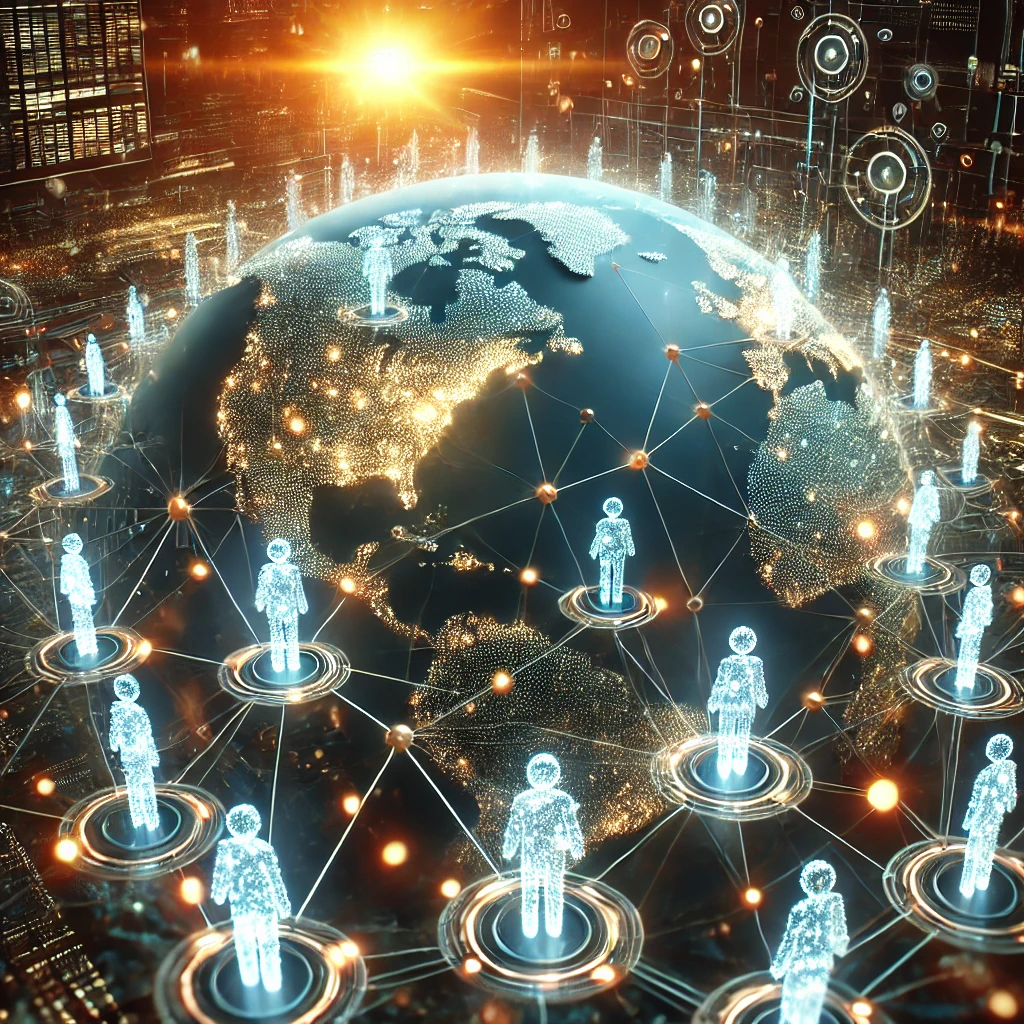TL;DR: The next decade belongs to agentic systems—LLM-powered actors that plan, use tools, coordinate with other agents, and improve through feedback. The winners won’t be the flashiest demos; they’ll be measurable, governable services with deterministic control, typed tools, grounded knowledge, and clear business metrics. Treat agents like teammates: give them a job description, access, budgets, KPIs, and supervision. Scale responsibly with evaluation, observability, and policy built in.
1) Why “agents,” and why now?
Three curves finally intersected:
Reasoning models that can plan and adapt.
Tool ecosystems (APIs, RPA, knowledge graphs, vector search) that let models act.
Orchestration patterns (state machines, graphs, actor systems) that bring reliability and governance.
The shift is from software that waits for instructions to systems that pursue goals within constraints.
2) From tools → skills → outcomes
Yesterday’s stack:
App → Feature → User clicks buttons → Outcome
Tomorrow’s stack:
Goal → Planner (LLM) → Tools (APIs/RAG/code) → Observation & Reflection → Outcome,
with budgets, policies, and metrics wrapped around the loop.
Key agent capabilities
Planning: decompose a goal into verifiable steps.
Tool use: call APIs, search KBs, run code—safely and idempotently.
Memory: short-term scratchpads; long-term user/product knowledge with provenance.
Collaboration: spawn/coordinate specialists; escalate to humans when appropriate.
Self-checks: groundedness, policy compliance, cost/latency budgets.
3) A simple autonomy model (L0 → L4)
L0—Assist: single-shot suggestions; no tools.
L1—Tool-using assist: one tool call (search, calculator, DB).
L2—Workflow agent: bounded loop; multiple tools; deterministic orchestrator.
L3—Supervisor: routes among specialists; handles dead ends and compensations.
L4—Portfolio of goals: plans across sessions, with human governance and SLOs.
Most enterprises should target L2/L3 first; L4 is a research–operations hybrid with stronger guardrails.
4) What changes—and what doesn’t
Will change
Unit economics: cost/contact or cost/task drops as containment and first-pass quality rise.
Time-to-value: shipping an automation becomes prompt+tool+graph, not multi-quarter dev.
Interfaces: chat, forms, and background automations coexist—agents aren’t only chatbots.
Won’t change
Need for deterministic control: timeouts, retries, circuit breakers.
Need for grounding: retrieval/KGs and policy before persuasion.
Need for evaluation: outcomes under constraints, not vibes.
5) Design principles for dependable agents
Deterministic skeleton, stochastic steps. Control flow is a graph; the LLM fills parameters.
Typed tools with preconditions. Validate inputs; make side effects idempotent and auditable.
Ground before you generate. RAG/KG with confidence; cite evidence or defer.
Budgets everywhere. Tokens, steps, wall-clock, money—enforced in code.
Short memories, long provenance. Summarize aggressively; tag facts with sources and TTLs.
Human-in-the-loop by design. Escalation payloads that are copy-ready for operators.
Observe and evaluate. Traces, metrics, and offline test sets gate releases.
6) Where agents will land first (and why)
Customer operations: policy-bound troubleshooting, returns, claims, KYC checks. (Clear acceptance rules, strong tools.)
RevOps & marketing: journey decisioning, lead enrichment, narrative generation with evidence.
IT & data ops: runbooks, ticket triage, incident summaries, SQL/code generation with validation.
Procurement & finance: invoice matching, price checks, policy compliance, variance analysis.
R&D & knowledge work: literature triage, experiment planners, doc automation with citations.
Common thread: well-defined goals, available tools/knowledge, and measurable success.
7) Governance: safety, accountability, and trust
Policy guardrails
Redact PII at ingest; allow/deny tool lists by intent.
Irreversible actions require preconditions (auth, limits) and sometimes human approval.
Log what was known (evidence), what was done (tool calls), and why (rationale).
Operational SLOs & gates
Outcomes: Task Success Rate (TSR), Groundedness, Safety violations (must be 0).
Experience: P50/P95 latency, clarification ratio, escalations.
Economics: cost/task, cache hit rates, retries.
Reliability: retrieval R@K, schema error rate, dead-end/loop rate.
Deploy via shadow → canary → GA, auto-rollback on gate breach.
8) Organizational playbook: onboard agents like teammates
Job description: scope, acceptance rules, non-goals.
Access: least-privilege credentials, data residency, audit trails.
Runbooks: “When to escalate,” “How to handle missing evidence,” compensations.
Training set: 30–50 realistic cases with gold answers/evidence for CI.
KPIs: set targets on TSR, P95, cost/task, escalation rate.
Performance reviews: weekly dashboards; raise the bar as coverage grows.
9) Practical architecture (copy-ready blueprint)
Client/UI (chat, form, batch) │ ├─↦ Router (light SLM → path selection) │ ├─ Template/no-LLM (deterministic) │ ├─ RAG Answerer (citations; single pass) │ └─ Agent Orchestrator (bounded loop; tools) │ ├─ Tools/Skills: CRM, Orders, Payments, Schedulers, Email, Code Exec ├─ Grounding: Vector search + lexical + reranker + KG ├─ Safety: PII redaction, allow/deny, budgets, action limits └─ Observability: traces, metrics, logs; Eval harness & gatesTech choices are swappable; interfaces aren’t. Invest in contracts, not vendors.
10) Economics: the real ROI model
ROI=(ΔContainment×Contacts×Cost/contact)+(ΔAHT×Handled minutes×Agent cost/min)+(ΔFCR×Repeat rate×Cost/contact)−(LLM + infra + ops)\text{ROI} = (\Delta\text{Containment} \times \text{Contacts} \times \text{Cost/contact}) + (\Delta\text{AHT} \times \text{Handled minutes} \times \text{Agent cost/min}) + (\Delta\text{FCR} \times \text{Repeat rate} \times \text{Cost/contact}) - (\text{LLM + infra + ops})
Make each term observable. If you can’t measure it, you can’t improve or defend it.
11) Risks & countermeasures
Hallucinated actions: enforce evidence checks; block unsafe tools absent proof.
Eval drift: pin model/KB versions in tests; snapshot evidence.
Prompt-injection: constrain tool scopes; sanitize inputs; detect anomalies.
Bias/fairness: slice outcomes across cohorts; add fairness thresholds to gates.
Compliance: retention TTLs, region pinning, export audit packs on demand.
12) 30/60/90-day roadmap to real impact
0–30 days — Prove value safely
Choose 1–2 high-value workflows; write acceptance rules.
Build deterministic orchestrator + 2–3 typed tools + RAG with citations.
Add traces/metrics; create a 50-case eval set; set baseline TSR/P95/cost.
31–60 days — Scale coverage
Add response & retrieval caches; tool preconditions & idempotency.
Introduce supervisor + specialists where specialization helps.
Shadow → canary rollout; weekly reports; tune budgets and thresholds.
61–90 days — Harden & expand
Bandit routing (template vs RAG vs agent) per intent slice.
Memory summaries with TTL; drift monitors; adversarial test packs.
Cost/latency gates in CI; expand to second domain/channel.
13) Anti-patterns to avoid
Unbounded “self-reflect” loops.
Free-form agent-to-agent chat as the only protocol.
Tooling without validation or idempotency.
Re-sending entire transcripts; let summaries carry context.
Optimizing judge prompts instead of fixing behavior (score theater).
Shipping without gates—then wondering why metrics regress.
Closing
The agentic future isn’t about replacing people—it’s about compounding human capability with systems that plan, act, and learn under visible constraints. If you make orchestration deterministic, tools safe, knowledge grounded, and outcomes measurable, agents stop being demos and start being infrastructure.
The horizon is bright—and very practical. Start small, measure honestly, and scale what works.


Comments